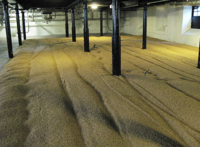What is whisky made from

How Whisky Is Made
Whisky, a drink with a rich history and complex flavor, is often appreciated by connoisseurs and enthusiasts around the world. The production of whisky is an art form that requires years of experience and precision. In this blog, we will explore the essential ingredients and the detailed production process of whisky.
Ingredients of Whisky
The basic ingredients of whisky are simple, but each contributes to the final taste and character of the drink.
-
Grains:
- Barley: The most commonly used grain in Scotch whisky, due to its high quality and ability to develop complex flavors during malting and distilling.
- Corn: Widely used in bourbon, with at least 51% corn required. Corn adds sweetness and a full body to the whisky.
- Rye: Used in both rye whisky and some bourbons, imparting a spicy and peppery flavor.
- Wheat: Sometimes used to create a softer and lighter whisky.
-
Water: Water is crucial at every stage of whisky production, from malting the barley to diluting the distilled spirit to the desired strength. The quality and character of the water can significantly influence the flavor of the whisky.
-
Yeast: Yeast is essential for fermentation, where the sugars in the malt are converted into alcohol. Different yeasts can impart subtle differences in flavor and aroma to the whisky.
The Whisky Production Process
The process of making whisky can be divided into five main stages: malting, mashing, fermenting, distilling, maturing, and bottling.
1. Malting
The process begins with soaking barley in water to make it germinate. This is known as "malting." After several days, the barley begins to sprout, producing enzymes that convert starch into sugars, a crucial step for fermentation. Once the germination process has progressed sufficiently, the barley is dried in a kiln, often using peat smoke, which can impart a smoky flavor to the whisky.
2. Mashing
The dried malt is then ground into a coarse flour called "grist." This grist is mixed with hot water in a large vessel known as a "mash tun," where the enzymes break down the starches further into sugars. This process produces a sweet liquid known as "wort."
3. Fermentation
The wort is cooled and transferred to fermentation vats, usually made of oak or stainless steel. Here, yeast is added, which converts the sugars in the wort into alcohol and carbon dioxide, resulting in a liquid known as "wash." This process typically lasts between 48 and 96 hours and produces a liquid with an alcohol content of about 6-8%.
4. Distillation
The wash is then distilled in copper pot stills, which help to remove unwanted compounds and concentrate the desired flavors and aromas. In Scotland, whisky is usually distilled twice, while Irish whisky is often distilled three times for a smoother end product. The distillation process yields a strong, clear liquid with an alcohol content of about 70%.
5. Maturation
The distilled spirit is transferred to oak casks for maturation. The choice of cask is crucial, as the wood significantly influences the final flavor of the whisky. Casks that have previously held sherry, bourbon, or wine are often reused to add extra complex flavors. During maturation, which lasts a minimum of three years according to Scottish regulations but often much longer, the spirit interacts with the wood, resulting in a gradual development of flavor, color, and aroma.
6. Bottling
After maturation, the whisky may be blended with other casks to ensure consistency and complexity. The alcohol content can be adjusted by adding water, and the whisky is filtered to remove any impurities before being bottled.
Factors Influencing the Flavor of Whisky
The flavor of whisky is influenced by a wide range of factors:
- The type of grain: Each type of grain contributes unique flavors, from the sweetness of corn to the spiciness of rye.
- The water: The mineral composition and purity of the water can cause subtle flavor differences.
- Yeast: The specific yeasts used during fermentation can develop different aromas and flavors.
- Distillation process: The shape and size of the pot stills, as well as the distillation methods, play a crucial role in the final flavor.
- Casks: The type of wood, previous contents of the casks, and the duration of maturation all directly impact the flavor, color, and complexity of the whisky.
- Environmental factors: The climate and location of the distillery can affect the maturation conditions, resulting in unique flavor profiles.
Conclusion
Making whisky is an art that requires a perfect balance between science and craftsmanship. Every detail, from the selection of grains to the choice of casks, contributes to the final tasting experience. It is this complexity and variety of flavors that make whisky such a beloved drink around the world. Whether you are a seasoned connoisseur or a new enthusiast, exploring the nuances of whisky can be a lifelong passion. Cheers!
No comments found.












